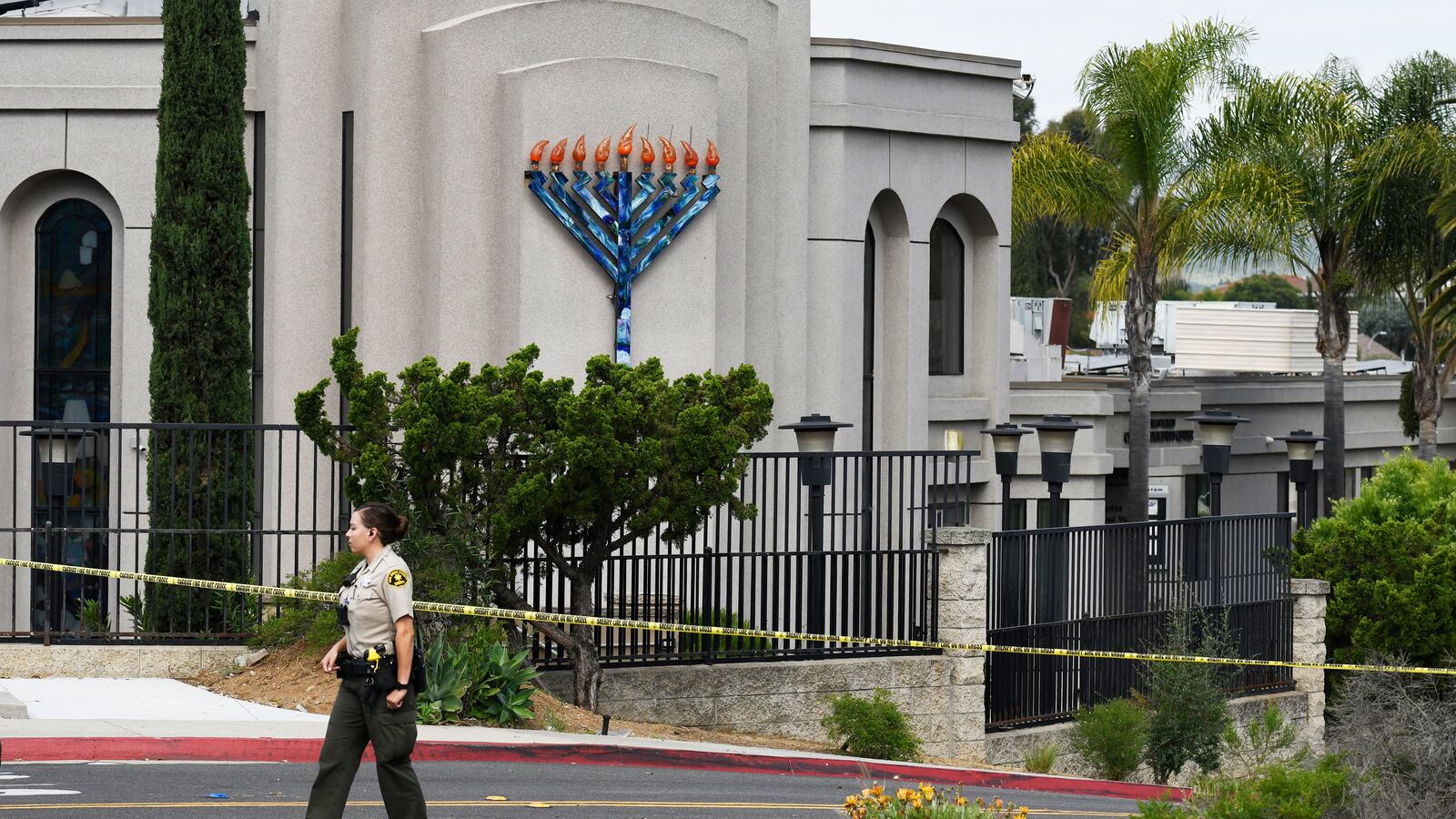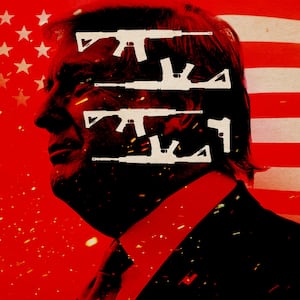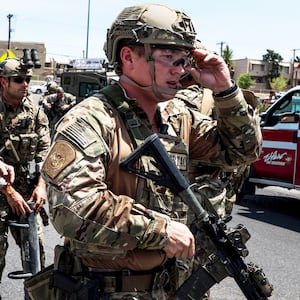As white supremacist violence surges, a major hub for American intelligence has quietly expanded its focus on domestic terrorism, according to a senior U.S. counterterrorism official who spoke with The Daily Beast. It’s a small shift that draws accolades from veteran national-security officials. The shift also concerns civil-liberties advocates, who say it may point to an erosion of the boundary between law enforcement and America’s spies.
The Bush administration stood up the National Counterterrorism Center (NCTC) after the Sept. 11, 2001, terrorist attacks as a clearinghouse for all intelligence except, as the Center has put it, that “pertaining exclusively to domestic terrorism.”
The NCTC employs approximately 1,000 people and federal law requires that it act as the government’s “knowledge bank” on known or suspected terrorists. For example, it keeps a massive database that serves as the basis of the TSA’s “no-fly” terrorist watchlist.
In early 2018, the official said, the head of the NCTC directed lawyers from the intelligence community to revisit its understanding of the law that governs it. A Democratic official on the House Intelligence Committee said Congress urged the Center to conduct the analysis—and fast.
By the summer of 2018, the lawyers concluded that NCTC could use its considerable resources to analyze purely domestic threats, as long as it did so to help the FBI and the Department of Homeland Security (DHS). NCTC officials shared that view with senior officials in the Office of the Director of National Intelligence that oversees the NCTC, and they didn’t get any pushback, per the official. Then the battleship started to turn—just a tad.
In the year since then, the official said, analysts in an NCTC entity that focuses on the radicalization and mobilization of potential foreign terrorists have been working on matters related to domestic terrorism.
NCTC officials have also begun setting up “a small element” in the Center’s Directorate of Intelligence focused on the domestic terror threat, the official said. The official noted that these efforts are not large-scale, and that they have had “to beg and borrow from different areas” to corral resources for the new domestic terrorism work.
To be sure, there’s a nomenclature problem when it comes to domestic and international terrorism, as hateful ideology can cross-pollinate between the U.S. and other countries. For instance, the New Zealander who murdered 51 people at two mosques cited American white supremacist Dylann Roof as an inspiration. Then the terrorist who allegedly murdered a worshiper at a synagogue in Poway, California cited the Christchurch shooter. When it comes to hate, Western nations have open borders.
It’s widely known that NCTC helps lead communications between U.S. officials and foreign partners about terrorism trends. The official said this includes conversations about right-wing and white supremacist threats.
In the 18 years after the September 11 attacks, the U.S. government has spent immense sums of money on the Global War on Terrorism—focused almost exclusively on the threat from Islamists. But with American white supremacists terrorizing domestic communities, more and more U.S. government officials say homegrown hate has eclipsed Islamist terrorism as America’s most immediate threat.
Veteran national security officials said they welcome even the small shift in resources at NCTC, as the Trump White House has largely ignored the threat.
“It’s a step in the right direction, but it’s a fraction of what’s needed overall to address the current threat environment,” said George Selim, a former DHS official who is now a senior vice president at the Anti-Defamation League.
Mary McCord, who previously helmed the Justice Department’s National Security Division, also said she welcomes the shift.
“We need to take a whole-of-government approach to the domestic terrorism threat the same way we took toward the international terrorism threat,” said McCord, now of the Georgetown University Law Center.

President George W. Bush delivers remarks to staff members at the National Counterterrorism Center on June 10, 2005, in Tysons Corner, Virginia.
Paul J. Richards/AFP/GettyBut others call for caution and question whether that the war on terror merits replication. For civil liberties advocates, any moves that deepen coordination between the intelligence community and law enforcement are cause for concern, to say the least.
Jake Laperruque of the Project on Government Oversight said the changes could blur “that line between international, foreign-focused surveillance and domestic policing with these hyped-up superpowers that they were never intended to have, even under the broad regime that Congress authorized after 9/11.”
Hina Shamsi, who heads the ACLU’s National Security Project, said the NCTC should share more with the public about how it interprets the laws that govern it.
“This begs questions, starting with what NCTC claims the authority to do and on what basis, and when this information will be made public,” she said. “What we do know is that it maintains the vast so-called Terrorist Identities database which feeds into the FBI’s secret, overbroad, and bloated watchlisting system. The people we’ve seen wrongly and disproportionately watchlisted are people of color, especially Muslims, and journalists.”








